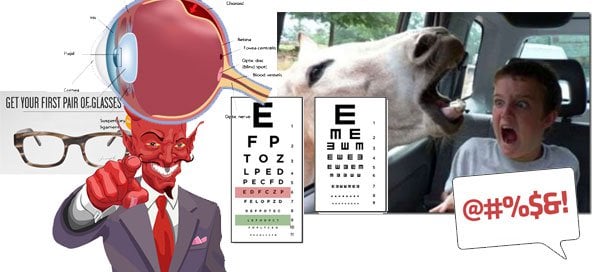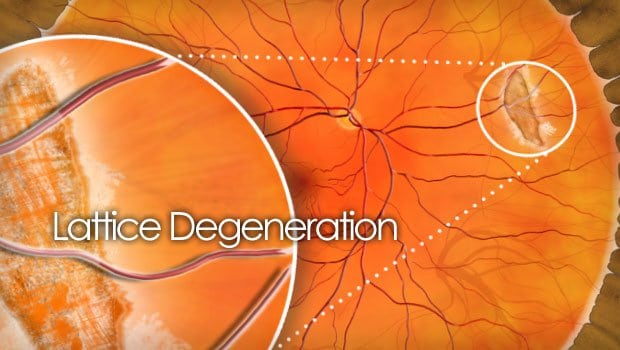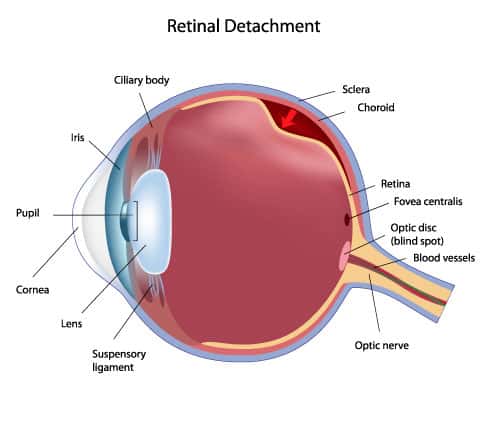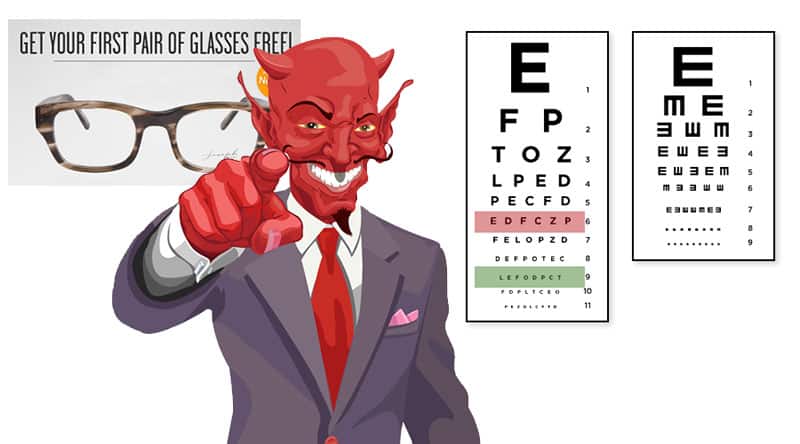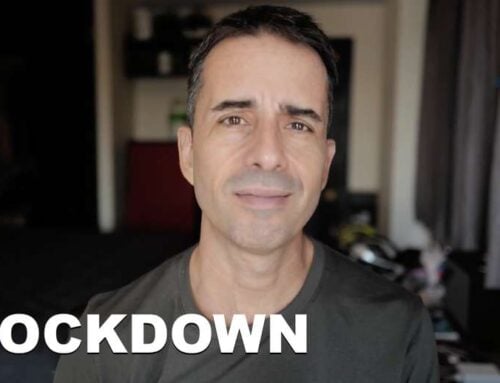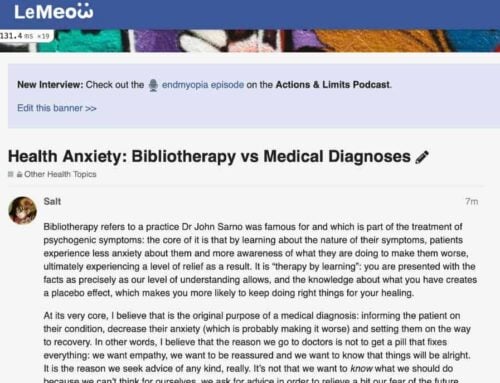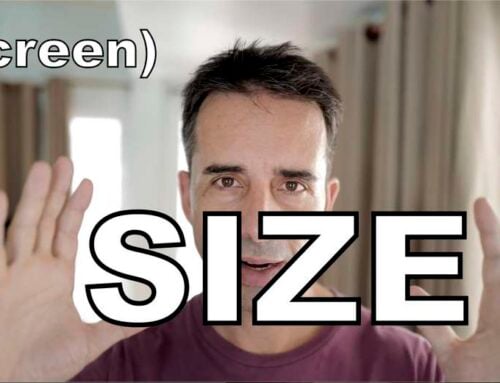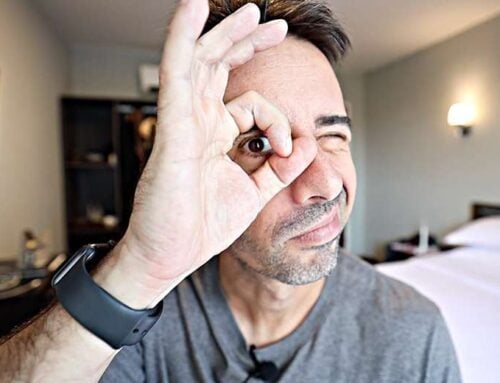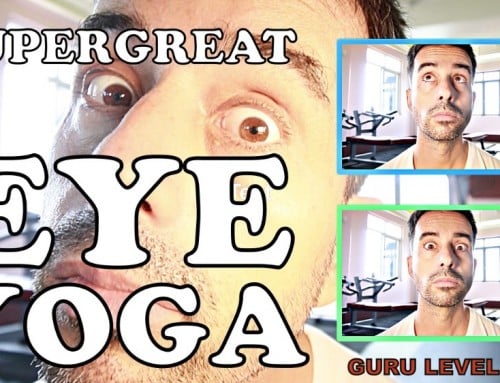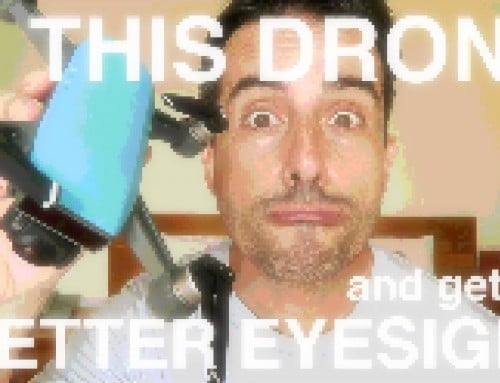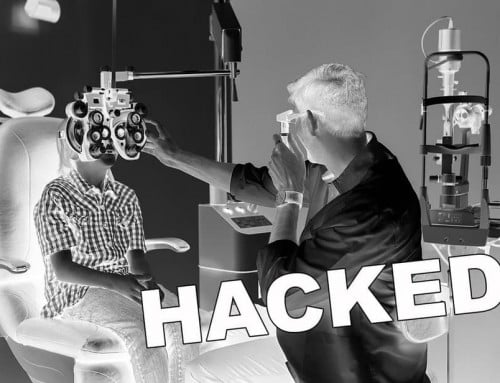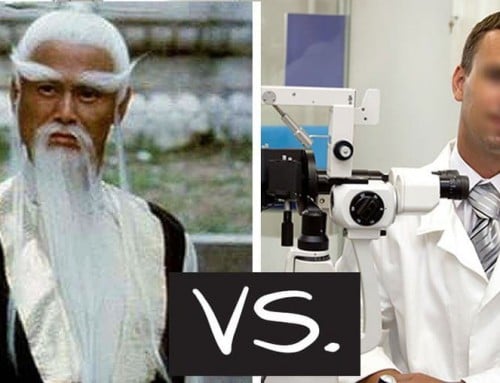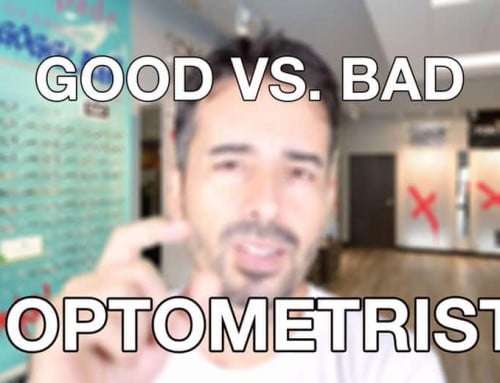Let me not hold you in suspense.
Yes. Panic is an appropriate response to floaters in your eyes.
Kid’s gonna have horse head floaters for *days*.
Elsewhere, well researched and eloquently, you’ll read things like what WebMD calls benign eye floaters:
![]() Eye floaters are small moving spots that appear in your field of vision. They may be especially noticeable when you look at something bright, such as white paper or a blue sky.
Eye floaters are small moving spots that appear in your field of vision. They may be especially noticeable when you look at something bright, such as white paper or a blue sky.
Eye floaters can be annoying, but they generally don’t interfere with your sight.
Occasionally a particularly large eye floater may cast a subtle shadow over your vision. But this tends to occur only in certain types of light.
Most of the time people learn to live with eye floaters and ignore them. And they often become less noticable over months to years. Only rarely do benign eye floaters become bothersome enough to consider treatment.”
—
Bruce, fetch the stable maid. The horse appears to have made a giant poop.
Yea, by all means. Do learn to live with eye floaters and ignore them. If you ignore them long enough, then … *peers over old-timey reading glasses* .. “they often become less noticeable over months to years”.
Bruce. There is horse shit everywhere. Seriously.
Ah, wait. There’s more:
![]() But sometimes eye floaters are a sign of a more serious condition. You should seek immediate medical attention if you notice a sudden increase in the number of eye floaters.
But sometimes eye floaters are a sign of a more serious condition. You should seek immediate medical attention if you notice a sudden increase in the number of eye floaters.
Immediate medical attention is especially important if the floaters are accompanied by flashes of light or a loss of side vision. If you have these symptoms, see an eye doctor right away. If available, choose an ophthalmologist with retinal expertise. Without immediate treatment, you can have permanent vision loss. These symptoms may be caused by:
- Retinal detachment
- Retinal tear
- Bleeding within the eye
—-
All right. So now we’re getting somewhere. Panic is back on.
![]() Most eye floaters are caused by small flecks of a protein called collagen.
Most eye floaters are caused by small flecks of a protein called collagen.
The back compartment of the eye is filled with a gel-like substance called vitreous humor.
As you age, the vitreous and its millions of fine collagen fibers shrink and become shred-like. Shreds can accumulate in the vitreous. The clear vitreous gel which completely fills the back of the eye earlier in life decreases in size and no longer can fill this space…. it pulls away from the retina and it is often the areas of previous attachment to the retina which are seen as floaters as they now float freely in the vitreous gel.
These changes can happen at any age. They most often occur between ages 50 and 75, especially in people who are very nearsighted or have had cataract surgery.
Rarely, eye floaters can result from other eye surgery or:
- Eye disease
- Eye injury
- Diabetic retinopathy
- Crystal-like deposits that form in the vitreous
- Eye tumors such as lymphoma (rarely)
Serious eye disorders associated with eye floaters include:
- Retinal detachment
- Retinal tear
- Vitreous hemorrhage (bleeding)
- Vitreous and retinal inflammation caused by viral infections, fungal infections, or auto-immune inflammation
- Eye tumors
—
That’s comprehensive and conducive to less panic. Well done, WebMD.
And he’s at least partially right, whoever sawdust-eating, yawn-inducing minion they have chained up in the basement, writing these articles.
Note the ever handy excuse of the medical establishment, with anything that starts with, “as you age”.
“Well, good buddy old chap, you see … as we age, ha, ha. Collagen. Shred-like. What can you do, eh? Here, take this prescription, partially covered by insurance. Btw, have you checked out my new Benz? I’m not getting any younger either. And have you seen our new line of Armani frames? Very fetching, old chap. Try on a pair! As we age, we do want to keep looking good, eh?”
Collagen-eyeball-soup. Not even worried.
So, let’s be serious. Should you worry?
And before we get into it, no. Your eyeball isn’t supposed to disintegrate into a collagen shred soup, just because you turned 55 yesterday.
But …
If you have low or no myopia, and are under 50, then calm down.
Also, not overweight or diabetic.
You just woke up, a little speck or two, probably not a huge deal. If it’s a bunch of floatey bits though, always, always go get that checked out immediately.
There’s also the matter of what seems like floaters but could be low blood pressure or other aspects not related to eyesight. Remember here that I’m the eye guru and not a medical doctor. You shouldn’t ever listen to me on subjects other than myopia.
Always get weird symptoms check out immediately.
But if you have moderate to high myopia, spend lots of time in close-up mode, aren’t the healthiest eater, maybe are lacking in exercise . then the sudden appearance of floaters should make you worry.
And get a checkup with an ophthalmologist, like now.
Why? Because …
15% Chance Of Retinal Tear Or Detachment
A study reported in the Journal of the American Medical Association in 2009 found that sudden presence of eye floaters and flashes means that one in seven people with these symptoms will have a retinal tear or detachment.
And up to 50 percent of people with a retinal tear will have a subsequent detachment.
If you have been checked, and got what is a fairly common response of “well it’s a bit of lattice degeneration“, then this might be the time to stop ignoring your eyesight health.
Wikipedia accurately describes lattice degeneration:
Lattice degeneration occurs in approximately 6-8% of the general population and in approximately 30% of phakic retinal detachments.[1] Similar lesions are seen in patients with Ehlers-Danlos syndrome, Marfan syndrome, and Stickler syndrome, all of which are associated with an increased risk of retinal detachment. Risk of developing lattice degeneration in one eye is also increased if lattice degeneration is already present in the other eye.[1]” — What nobody ever seems to mention, other than casually pointing out that mostly moderate to high myopes are affected .. is that much of this eye floaters business could be prevented. The problem almost always goes back to axial elongation, an elongation of the eyeball. This goes back to lens-induced myopia, and the fact that your healthy eye continually grows longer in response to the lens stimulus. If this is unfamiliar to you, I strongly recommend this quick quick read. The retina isn’t part of your eyeball. It’s attached to it. When you mess with eyeball shape by putting increasingly large prescriptions on your face, eventually the attachment points and retina itself are going to suffer the consequences. In other words, listening to optometrists telling you that it’s all not your fault, that you can spend 16 hours a day staring at screens, your phone, and the TV, isn’t the wisest of ideas. Sure it sounds great. Buy a lens, stick it in front of your eye, problem solved. Alas, minus lenses are a deal with the devil. Hyperbole Saturday, Jake! Wait, wait … I got something for this: That’s right, friend. FREE FIRST PAIR. Of course as I often say, that doesn’t mean you should just quit wearing glasses. What it does mean though, is that you end up paying for all that overindulgence and close-up, and using prescriptions like it’s candy. [fusion_highlight color=”#b52929″ rounded=”yes” class=”” id=””]*Rant Alert*[/fusion_highlight]
And then, seriously, they all come to me in the 11th hour. Asking me for 400 pieces of free advice and discounts on my program. There’s hundreds of perfectly good free blog articles. Don’t come to the guru empty handed and full of entitlement attitudes. What’s the take-away? What should you do? If you’re moderate to high myopia and not getting any younger, it’s time to start looking at your lens wear habits and copious close-up consumption. If you already have floaters and are racking up close-up time every day like it’s the Absinthe habit you picked up on your Paris vacation last year that you’re still totally in denial about … well, either way it’s time to start thinking about taking better care of your eyes. That or collagen soup, and chap old buddy, haha-guy-eye-doctor. Just think about this. Every hour you spend hunched over your iPhone and staring at screens, especially with that prescription meant for distance vision, is slowly pulling away at your retinal walls. Melting the eyeballs over slow flame. Roasting the bits that let you see. But whatever. Don’t mind me, I’m not even a doctor. Cheers, – Jake![]() Lattice degeneration is a disease of the human eye wherein the peripheral retina becomes atrophic in a lattice pattern and may develop tears, breaks, or holes, which may further progress to retinal detachment. It is an important cause of retinal detachment in young myopic individuals. The cause is unknown, but pathology reveals inadequate blood flow resulting in ischemia and fibrosis.
Lattice degeneration is a disease of the human eye wherein the peripheral retina becomes atrophic in a lattice pattern and may develop tears, breaks, or holes, which may further progress to retinal detachment. It is an important cause of retinal detachment in young myopic individuals. The cause is unknown, but pathology reveals inadequate blood flow resulting in ischemia and fibrosis.

